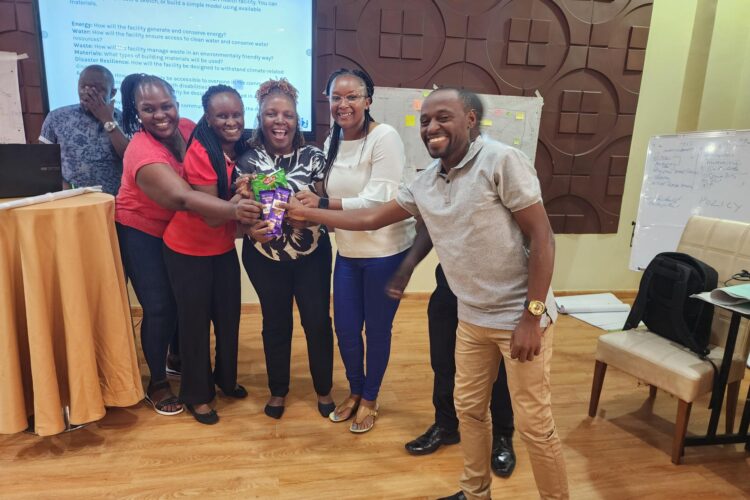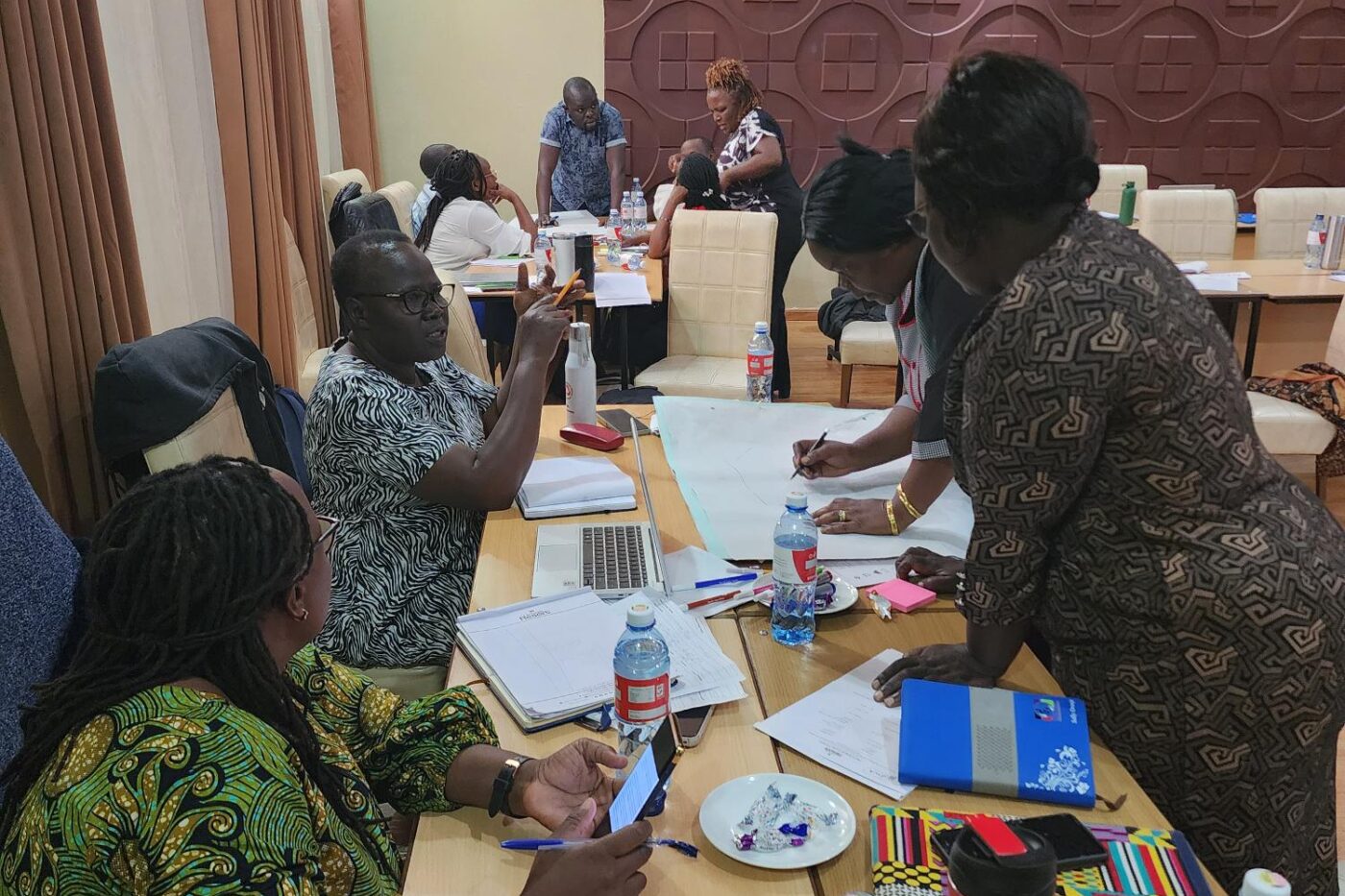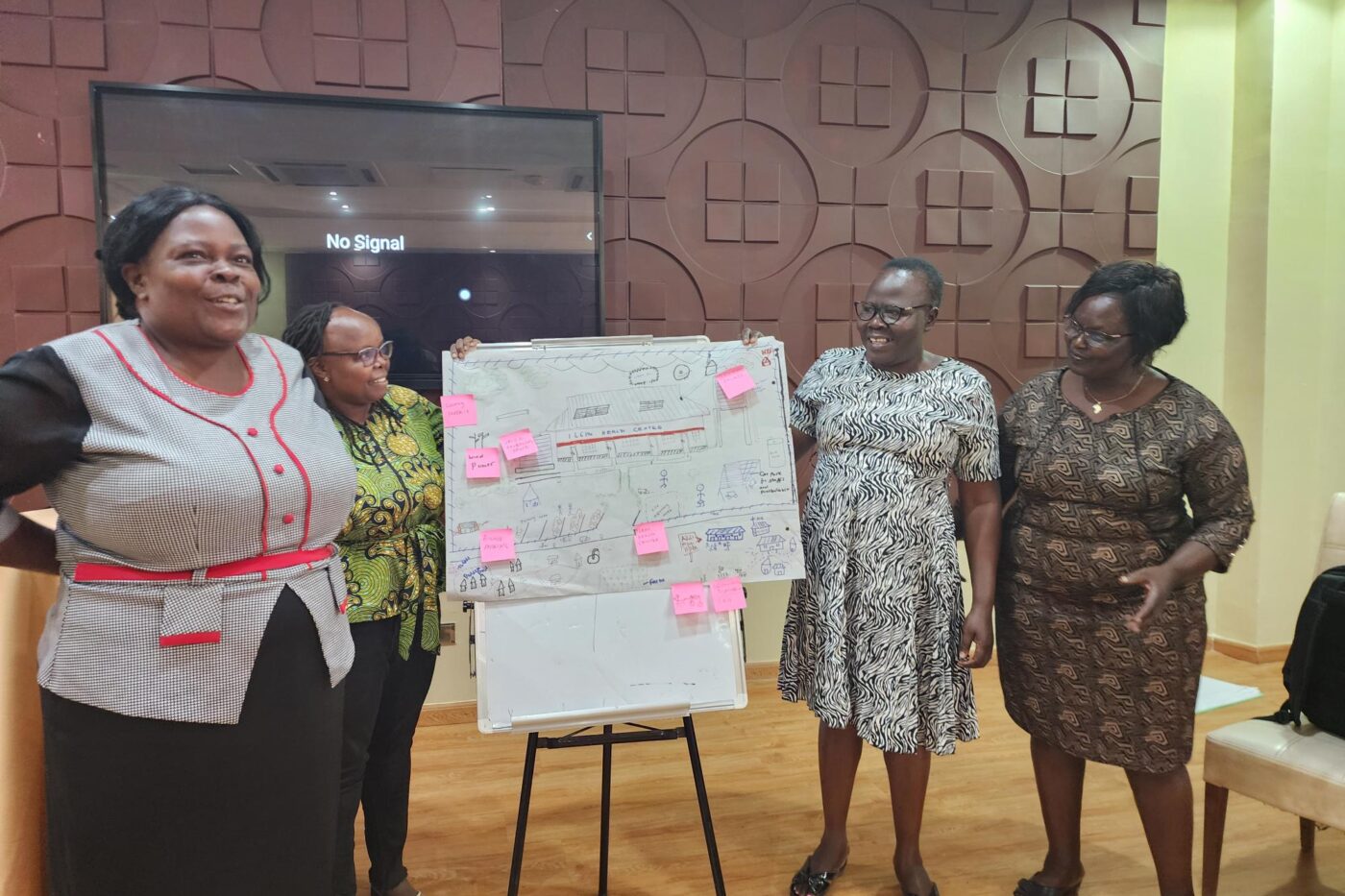Enabling Kenyan Midwives for Advocacy and Climate Action

Earlier this year, ICM and the Midwives Association of Kenya (MAK) partnered to deliver a two-part workshop series aimed at strengthening the leadership and advocacy capacity of midwives in Kenya. The initiative focused on two critical areas: building strategic advocacy skills to influence policy and systems change, and preparing midwives to tackle the growing health threats of climate change.
Held in Lake Naivasha, the workshops brought together 30 participants, including midwives, policymakers, and civil society partners, all committed to advancing midwifery and improving health outcomes for women, newborns and gender diverse people. Together, these workshops marked a significant step in equipping Kenyan midwives to lead change—both within the health system and in the face of the climate crisis.

Advancing Advocacy for Midwifery
Led by advocacy expert Farida Luyiga, the first component of the workshop focused on helping midwives develop effective, targeted advocacy strategies to improve midwifery recognition, policy inclusion, and practice in Kenya.
Participants learned how to define advocacy priorities, develop SMART objectives, map stakeholders, build alliances, craft clear messages, and design actionable strategies. The training was rooted in the realities midwives face and was built around findings from an advocacy needs assessment conducted in advance.
Key issues raised included the critical shortage of midwives in Kenya, the lack of policies supporting midwifery models of care, and the need to align midwifery education with the Essential Competencies for Midwifery Practice and the Global Standards for Midwifery Education.
“Although I have a leadership role, I found the training valuable. I now have tools to prioritise issues and push for change in Kilifi County,” said Doris Mwanzui, a nurse-midwife and county programme officer.
For Jane Mbaluka, MAK’s National Treasurer, the workshop helped her shape persuasive messages for decision-makers. Jacqueline Njeru, Regional Representative for Central Kenya, praised the structured approach and said she now felt equipped to “advocate not only for midwives, but also for the women and newborns we serve.”
Dr. Lister Onsongo, CEO of the Nursing Council of Kenya, acknowledged the need to elevate midwifery as a distinct profession and shared the Council’s plans to work with MAK to revise training pathways and define midwifery’s scope of practice. The proposal to rename the Nursing Council to the Nursing and Midwifery Council of Kenya was one of the key issues raised during the workshop, reflecting the need to formally recognise midwifery as a distinct profession with a defined role in health policy and service delivery.
By the end of the workshop, participants had developed regional advocacy strategies using the frameworks introduced and committed to taking immediate action at both national and county levels.
Equipping Midwives for Climate Leadership
ICM also piloted a new three-day Training of Trainers (ToT) programme focused on climate change and maternal health. Delivered by Neha Mankani, ICM’s Humanitarian Engagement and Climate Advisor, the training aimed to build a cadre of midwives ready to lead climate action in their communities.
The programme combined foundational knowledge of climate science with hands-on skill-building. Participants examined the link between climate risks—such as heatwaves, floods, and drought—and their impact on sexual, reproductive, maternal, newborn and adolescent health, especially in vulnerable populations.
Interactive sessions included vulnerability mapping, case studies, and a guest lecture from disability rights advocate Caroline Agwanda, which helped midwives explore the intersection of disability, climate change, and reproductive health. Participants learned to conduct client-specific vulnerability assessments and develop tailored climate action plans for their practice settings.
“This training gave midwives the tools to assess climate risks and develop practical solutions for the communities they serve. They are now better prepared to lead local climate responses that protect women and newborns,” said Neha Mankani.
On the final day, each midwife led a “teach-back” session—rehearsing how they would train others using the knowledge and tools gained. These sessions strengthened their ability to scale the training across counties.
The Road Ahead
Together, these two workshops created a powerful platform for midwives in Kenya to lead change in the most urgent areas affecting their profession and communities.
MAK National Chairperson Teckla N. Ngotie expressed her gratitude to ICM and the UK Foreign, Commonwealth & Development Office (FCDO) for their support. “Seeing midwives immediately implement what they have learnt proves that they are ready to take charge of advocacy and push for policies and actions that support and elevate midwifery in Kenya, especially in the face of climate change.”
Next steps include integrating climate change education into midwifery training curricula, advocating for national guidelines on climate-resilient maternal health, and conducting regional rollouts of the training. ICM will also leverage lessons learned to adapt and refine the training for diverse country contexts. On the advocacy front, MAK will continue engaging with government stakeholders to promote midwifery models of care and secure professional recognition.
These capacity-building efforts are part of ICM’s Strengthening Local Midwifery Associations project, which supports midwives in Kenya, Malawi, and Pakistan to lead, advocate, and act in response to the challenges they face.
